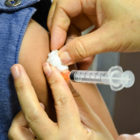Medicare Penalizes 25 Hospitals For Readmissions, But Fines Lower Due To COVID
|
Twenty-five Connecticut hospitals will lose some of their Medicare reimbursement payments starting this month as penalties for having too many readmitted patients. Still, in most cases, the fines are much lower than in previous years, new data from the Centers for Medicare and Medicaid Services (CMS) show. In this year’s evaluation, CMS considered the COVID-19 pandemic and its impact on hospitals, excluding data for the first half of 2020 and Medicare patients readmitted with pneumonia, according to a report in Kaiser Health News. Nationally, Medicare is penalizing 2,273 hospitals, the fewest since 2014, with an average payment reduction of 0.43%, Kaiser reported. In Connecticut, 69% of all hospitals in the program face fines, but most are under 1%.





